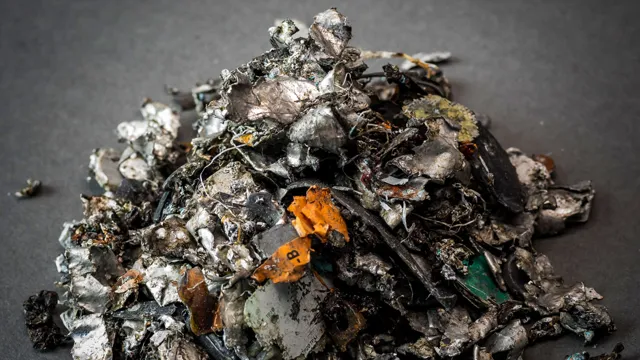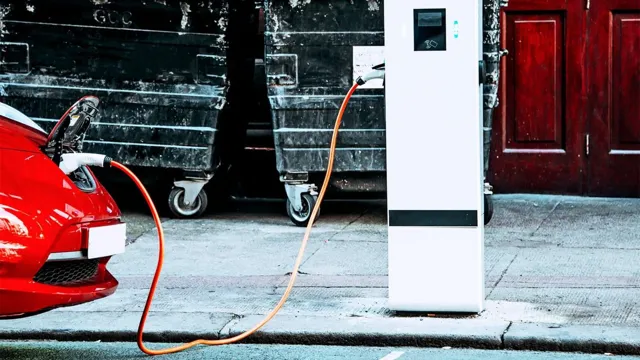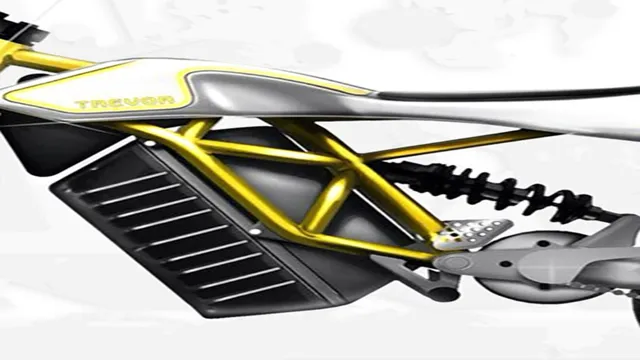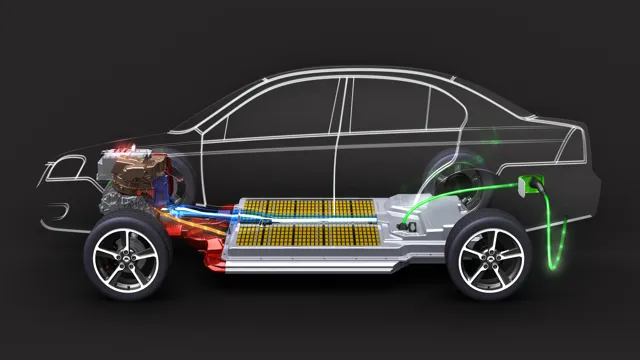Unmasking the Dark Side of Electric Cars: The Toxic Reality of Battery Waste
Electric cars have become increasingly popular in recent years, hailed for their eco-friendliness and reduced reliance on fossil fuels. However, with this shift towards electric vehicles comes a new concern – the toxic waste produced by their batteries. While these batteries are designed to be long-lasting, their eventual disposal raises important questions about the environmental impact of this new wave of transportation.
With the number of electric vehicles on the rise, it is crucial to address the issue of battery waste and find sustainable solutions. In this blog, we will explore the impact of electric car battery toxic waste on the environment and what steps can be taken to mitigate it.
What is Electric Car Battery Toxic Waste?
Electric car battery toxic waste refers to the hazardous materials that are left over after the useful life of an electric car battery has run out. These batteries use a variety of metals and chemicals, including lithium, cobalt, nickel, copper, and graphite, to function properly. Unfortunately, these materials are not only non-renewable but are also extremely toxic and pose a significant risk to the environment and human health if not managed properly.
Disposing of electric car battery toxic waste can be a challenging and expensive process that requires specialized equipment and processes to ensure that it is done safely and responsibly. As electric cars become more mainstream, it is crucial to develop and implement sustainable practices for managing the toxic waste that they produce. This includes investing in research and development for better battery technologies and recycling processes, as well as creating more comprehensive regulations and policies to ensure that electric car battery toxic waste is not ignored or simply swept under the rug.
Definition
Electric car battery toxic waste refers to the hazardous waste generated by the disposal of batteries used in electric vehicles. Although electric cars are considered eco-friendly, the materials used in making their batteries are hazardous to the environment, posing a significant threat to human health. These batteries contain toxic chemicals such as lead, cadmium, nickel, and lithium, which can cause pollution and harm to wildlife and people if they leach into soil and water sources.
Proper disposal of electric car batteries is crucial in protecting our environment and reducing the risks associated with toxic waste. Electric car manufacturers are working on developing sustainable practices for battery disposal, recycling, and reuse to mitigate the negative effects on the environment. It is essential to focus on reducing toxic waste production and finding sustainable solutions to offset the costs of producing such waste in the future.
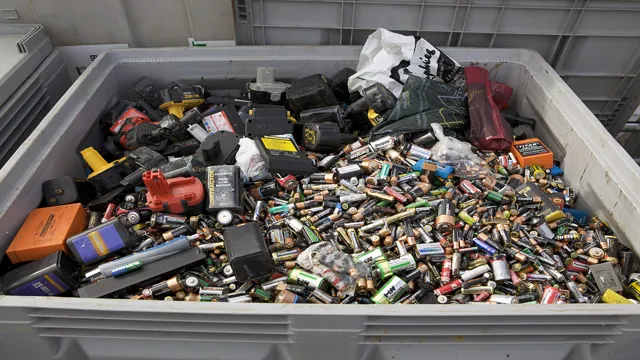
Sources
Electric car batteries are increasingly popular as the world moves towards a more sustainable future. However, one aspect of their use that is often overlooked is the issue of toxic waste. Electric car batteries contain a variety of potentially harmful materials, including lithium, cobalt, and nickel.
These materials can be hazardous to both the environment and human health if not disposed of properly. When batteries reach the end of their life cycle, they must be recycled or disposed of carefully to prevent these toxins from entering the ecosystem. While this may seem like a daunting task, many companies are working to develop sustainable and responsible disposal methods for electric car batteries.
It’s crucial that we consider the environmental impact of every aspect of our lives, including the batteries in our electric cars.
Composition
Electric car batteries have been praised for their eco-friendliness, but they come with a potential downside: toxic waste. These batteries are made up of a combination of metals, chemicals, and plastics that can pose environmental hazards when not disposed of properly. The primary concern is the cathode, which typically contains cobalt, nickel, and manganese.
If not handled with care, these metals can seep into soil and water sources, causing pollution. Additionally, the production process of electric car batteries requires a significant amount of energy and resources, which further contribute to their environmental impact. However, efforts are being made to improve battery recycling and disposal processes to minimize the negative impacts of electric car batteries.
Overall, while electric car batteries may not be perfect, they offer a promising step towards a greener future.
Environmental Impact of Electric Car Battery Toxic Waste
The rise in popularity of electric cars has brought up concerns about the environmental impact of electric car battery toxic waste. While it’s true that electric car batteries contain hazardous materials, it’s important to note that the production of these vehicles has already reduced greenhouse gas emissions. In fact, electric vehicles create far less air pollution than traditional gasoline-powered cars, resulting in improved air quality for the environment and human health.
However, the safe disposal of electric car batteries is a challenge. The batteries contain heavy metals like lead, cobalt, and nickel that can have serious environmental impacts when not properly disposed of. To mitigate the toxic waste problem, automakers and battery manufacturers are working towards providing sustainable solutions for battery disposal and recycling.
Some companies even plan to reuse electric car batteries in other applications, such as home energy storage systems.
Soil Pollution
Soil Pollution, Electric Car Battery Toxic Waste Electric cars are widely regarded as an environmentally friendly alternative to traditional gasoline-powered vehicles. However, the production and disposal of electric car batteries pose significant environmental risks. Electric car battery toxic waste contains heavy metals such as lead, nickel, and cobalt, which can contaminate soil and groundwater if not managed properly.
Soil pollution, in turn, can lead to reduced agricultural productivity and health risks for humans and animals. Governments and automobile manufacturers must take steps to ensure that electric car batteries are recycled or disposed of in an environmentally responsible manner. This includes investing in research and development of more sustainable battery materials and implementing regulations and policies for battery recycling.
By doing so, we can continue to reap the benefits of electric vehicles without exacerbating soil pollution and its negative impacts.
Water Pollution
Electric car batteries are often seen as a more environmentally-friendly option for transportation, but their production comes with a hidden cost – toxic waste. The manufacturing process of electric car batteries involves the use of rare metals such as cobalt, nickel, and lithium, which generate a significant amount of waste during the extraction and processing phases. This toxic waste can end up polluting water sources and damaging the local environment.
Although efforts are being made to reduce the use of these metals in battery production, the demand for electric cars means that the problem may only worsen if proper disposal measures aren’t put in place. Therefore, it’s essential to consider the environmental impact of electric car batteries and to prioritize sustainable production and disposal methods. By doing so, we can help reduce the amount of toxic waste that ends up in our water and protect the health of our planet for generations to come.
Air Pollution
Air Pollution As we strive towards a greener future, electric cars have become increasingly popular. While they may not release harmful emissions into the air like gas-powered vehicles, they have their own environmental impact. Electric car batteries contain toxic materials like lithium, cobalt, and nickel, which can have detrimental effects if not disposed of properly.
When these materials are released into the environment, they can contaminate soil, water sources, and air, contributing to air pollution. But this doesn’t mean that electric cars aren’t a better option. Compared to gas-powered vehicles, they still have a much lower carbon footprint.
Additionally, many manufacturers are investing in more sustainable battery technologies and recycling programs to reduce the waste created by electric car batteries. With continued efforts towards sustainability, electric cars can be a viable solution to reducing air pollution.
Solutions to Electric Car Battery Toxic Waste
Electric car battery toxic waste is a growing concern in the automotive industry. However, several solutions can help reduce its impact on the environment. One such solution is recycling electric vehicle batteries, which can recover valuable materials and reduce the amount of waste in landfills.
Additionally, exploring alternative batteries that are safer and less toxic can minimize the impact of electric car batteries on the environment. Battery manufacturers can also improve the design of electric vehicle batteries to ensure that they are easier to dismantle and recycle when they reach the end of their life cycle. Another solution is to develop better methods of disposing of toxic waste by using treatment technologies such as carbon capture, recycling, or even creating renewable energy.
It is essential that car manufacturers, battery manufacturers, and policy-makers work together to implement these solutions and reduce the negative environmental impact of electric car battery toxic waste.
Recycling
Recycling Electric Car Batteries Electric car batteries utilize valuable materials such as lithium, cobalt, and nickel which are expensive to produce and could become scarce in the future. Recycling these batteries not only reduces waste but also contributes to a more sustainable future. One solution to the toxic waste caused by electric car batteries involves recycling these materials and reusing them to manufacture new batteries or other products.
As such, some governments and organizations around the globe have implemented programs for recovering these materials. The recycling process involves extracting the valuable materials from the used batteries and purifying them such that they meet the required standards. These recycled materials are then utilized for manufacturing new batteries and reducing reliance on new raw materials.
While this process might require significant financial investment, it helps to preserve valuable resources and prevents the accumulation of toxic waste. Furthermore, this approach contributes to a circular economy that employs resource use, recovery, and reuse.
Reusing
Electric Car Battery Toxic Waste One solution to the problem of electric car battery toxic waste is to reuse the batteries instead of throwing them away. After a battery can no longer hold a charge sufficient for an electric vehicle, it still retains a considerable amount of power. This power can be used for other purposes, such as storing power from solar panels or wind turbines.
Reusing batteries not only conserves resources, but it also reduces the amount of waste that would otherwise end up in landfills. By repurposing these batteries, we can significantly reduce the environmental impact of electric vehicles and ensure that we are using our planet’s resources in a sustainable manner. Battery manufacturers are already exploring ways to make their batteries more reusable, and it is imperative that we encourage this trend for the sake of our planet.
As more people make the switch to electric vehicles, it is vital that we find ways to make the batteries more sustainable. By reusing these batteries, we can make significant strides towards a greener future.
Conclusion
In conclusion, electric car battery toxic waste may initially seem like a major concern for our environment, but let’s zoom out for a moment. The fact remains that compared to the harmful emissions produced by gas-powered cars every day, electric car battery disposal is nothing more than a drop in the bucket. It’s important to keep in mind that no technology is perfect, but we must strive to make the best possible choices to ensure a healthier and more sustainable planet for generations to come.
“
FAQs
How does the use of electric car batteries impact the environment?
While electric cars are more eco-friendly than traditional gas-powered vehicles, the production and disposal of their batteries can contribute to toxic waste. The production process involves the mining of rare minerals and various chemicals, while disposal methods typically involve incineration or landfills, both of which can have negative effects on the environment.
Are there any alternatives to using toxic batteries in electric cars?
Scientists are constantly researching and developing new battery technology for electric cars that are less harmful to the environment. One alternative is the use of sodium-ion batteries, which utilize abundant and non-toxic materials instead of rare minerals. However, these batteries are still in the research and development phase and not yet commercially available.
How can we dispose of electric car batteries safely and responsibly?
Recycling is the most responsible way to dispose of electric car batteries. Recycling centers can extract valuable metals from the batteries, reducing the need for further mining and limiting the amount of toxic waste produced. Some automakers even offer battery recycling programs for their customers.
What role do policymakers play in addressing the toxic waste issue surrounding electric car batteries?
Policymakers have the power to incentivize green practices and regulate the disposal of electric car batteries. Governments can require automakers to use more eco-friendly materials in battery production or require them to establish efficient recycling programs. Such policies can ultimately reduce the environmental impact of electric cars and move us towards a greener future.
